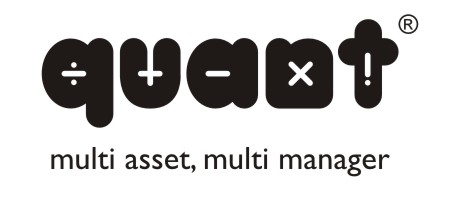Quant AMC Under SEBI Investigation: What Investors Need to Know
Quant AMC, a notable asset management company, is currently under investigation by the Securities and Exchange Board of India (SEBI) for alleged front-running practices. This article provides investors with essential information about the ongoing inquiry, the potential implications for Quant AMC, and guidance on how to navigate this situation.


Introduction to Quant AMC
Quant Asset Management Company (AMC) has long held a distinguished position in the asset management industry, renowned for its innovative investment strategies and consistent market performance. Established with a vision to redefine traditional asset management paradigms, Quant AMC has demonstrated exemplary growth since its inception. Over the years, the company has successfully navigated market complexities, leveraging data-driven approaches and advanced quantitative models to deliver superior returns to its investors.
The history of Quant AMC is marked by strategic milestones that underscore its commitment to excellence. From launching pioneering investment products to integrating cutting-edge technology in portfolio management, the firm has consistently stayed ahead of industry trends. Such innovation has not only earned Quant AMC a loyal client base but has also solidified its reputation as a forward-thinking leader in asset management.
Quant AMC's growth trajectory is a testament to its robust business model and adept management team. The company's assets under management have seen a substantial increase, reflecting investor confidence and the efficacy of its investment strategies. Notably, Quant AMC has been recognized with multiple industry accolades, further affirming its status as a key player in the asset management sector.
Before the recent SEBI investigation, Quant AMC was celebrated for its transparency, regulatory compliance, and unwavering commitment to investor interests. The firm's achievements in delivering consistent returns, even in volatile market conditions, have been particularly noteworthy. Quant AMC's proactive approach to risk management and its emphasis on ethical investment practices have been central to building its impeccable reputation.
In conclusion, Quant AMC's storied history and impressive growth highlight its significance in the asset management landscape. Its innovative strategies and consistent performance have set a high benchmark in the industry, making it a trusted name among investors. As the company navigates the current SEBI investigation, its foundational strengths and past achievements will play a crucial role in shaping its future trajectory.
Understanding SEBI and Its Role
The Securities and Exchange Board of India (SEBI) is the premier regulatory authority tasked with overseeing the securities market in India. Established in 1988 and given statutory powers through the SEBI Act of 1992, the organization plays a crucial role in maintaining the integrity and efficiency of the financial markets. SEBI's primary mandate is to protect the interests of investors and to promote the development and regulation of the securities market.
SEBI's responsibilities extend across various facets of the financial landscape, including regulating stock exchanges, mutual funds, and other market intermediaries such as brokers and sub-brokers. The body is also responsible for approving and monitoring stock market listings, ensuring that companies adhere to stringent disclosure norms that promote transparency and fairness.
One of the fundamental roles of SEBI is to investigate and address market irregularities. This is particularly significant in cases where there are suspicions of financial misconduct or non-compliance with securities laws. SEBI is empowered to conduct audits and inspections, summon documents, and question individuals to ensure compliance. Furthermore, SEBI can impose penalties, suspend trading activities, and even initiate legal proceedings to address violations.
The importance of SEBI in maintaining market integrity cannot be overstated. By enforcing regulations and promoting best practices, SEBI helps to build investor confidence and foster a stable and predictable market environment. This regulatory oversight is essential for the smooth functioning of India's financial markets, ensuring that they remain competitive and attractive to both domestic and international investors.
In summary, SEBI's role is multifaceted, encompassing regulation, compliance, and enforcement. Its vigilance and regulatory actions are pivotal in safeguarding the interests of investors and in maintaining the overall health of the securities market. As the watchdog of India's financial markets, SEBI's work is integral to promoting transparency, fairness, and investor protection.
Details of the SEBI Raid on Quant AMC
The Securities and Exchange Board of India (SEBI) recently conducted a raid on Quant Asset Management Company (AMC), a significant event in the financial sector. The raid took place following suspicions of front-running practices within the firm. Front-running, a serious violation in the financial industry, involves trading securities based on advance non-public information about pending transactions. SEBI’s action was initiated after receiving credible complaints and conducting preliminary investigations that hinted at such unethical activities.
During the raid, SEBI officials thoroughly examined Quant AMC's records, communications, and trading activities. The investigation aims to uncover the extent of the alleged front-running and identify individuals involved. The allegations suggest that certain employees at Quant AMC may have used confidential information to execute trades ahead of significant client orders, thereby profiting unlawfully at the expense of their clients and the market’s integrity.
The implications of these allegations are manifold. If proven true, they could lead to severe penalties for Quant AMC, including hefty fines, suspension of trading licenses, and possible criminal charges against involved personnel. Furthermore, the reputation damage could be detrimental, affecting the firm's ability to attract and retain clients in the highly competitive asset management industry. Investor confidence, a crucial element for any financial entity, has already been shaken, as evidenced by the immediate downturn in Quant AMC’s stock value post-raid.
The immediate impact of the SEBI raid on Quant AMC's operations was significant. The firm's day-to-day activities faced disruptions as employees were questioned and documents were seized for further examination. This has led to a period of uncertainty for both the company and its investors. As the investigation unfolds, the financial community remains keenly observant, understanding that the outcome could set a precedent for regulatory actions against similar malpractices in the industry.
What is Front-Running?
Front-running is a form of insider trading that occurs when a broker or trader executes orders on a security for their own account while capitalizing on advance knowledge of pending orders from their clients. This practice is highly unethical and illegal, as it undermines the integrity of financial markets and erodes investor confidence.
The mechanics of front-running involve a broker or trader receiving a large order from a client that is likely to influence the asset's price. Before executing the client's order, the broker places a similar order for themselves, typically at a better price. Once the client’s order is executed and the asset’s price moves in the anticipated direction, the broker profits from the price change. This manipulation of market conditions not only disadvantages the client but also distorts the market prices.
Legally, front-running is considered a severe violation under securities laws in many jurisdictions, including those governed by the Securities and Exchange Board of India (SEBI). The legal implications for those caught engaging in front-running can include hefty fines, suspension or revocation of trading licenses, and even imprisonment. Regulatory bodies like SEBI are vigilant in detecting and prosecuting such offenses to maintain fair market practices.
Historically, there have been several notable cases of front-running that highlight its serious repercussions. For instance, in 2003, Merrill Lynch settled charges with the United States Securities and Exchange Commission (SEC) for $10 million after it was found that traders engaged in front-running mutual fund trades. Another example is the 2014 case involving a senior trader at a major investment bank who was fined and banned from trading for front-running clients' orders in the foreign exchange market.
Such cases underscore the importance of strict regulatory oversight and robust compliance mechanisms within financial institutions. Investors rely on fair and transparent markets to make informed decisions, and front-running directly threatens this trust. Consequently, regulatory authorities like SEBI are committed to identifying and penalizing front-running activities to safeguard market integrity and protect investor interests.
Investor Reactions and Market Impact
The recent SEBI investigation into Quant AMC has elicited a range of reactions from investors, analysts, and market experts. Initially, the market responded with uncertainty, leading to a temporary dip in Quant AMC’s stock prices. Concerns about the potential implications of the investigation have led to a cautious stance among investors, who are closely monitoring the situation for further developments.
Market analysts have noted that the immediate reaction is largely driven by fear and speculation. The uncertainty surrounding the outcome of the investigation has created a volatile environment, with some investors opting to divest from Quant AMC in the short term. However, seasoned analysts suggest that the long-term impact on Quant AMC’s reputation and market position will largely depend on the findings of SEBI and the subsequent actions taken by the company.
In the broader asset management industry, the investigation has sparked a wave of introspection. Other asset management companies are likely to reassess their compliance frameworks to ensure adherence to regulatory standards. This heightened scrutiny could lead to more robust governance practices across the sector, ultimately benefiting investors by fostering a more transparent and accountable investment landscape.
Quant AMC’s competitors may experience indirect effects from the investigation. Some investors might redirect their funds to other asset management firms perceived as more stable and compliant. This shift could temporarily benefit those companies, although it also places them under increased pressure to maintain impeccable regulatory adherence.
While the immediate market impact has been significant, the long-term consequences for Quant AMC will hinge on the resolution of the SEBI investigation. Investors and market participants are advised to stay informed and consider the broader implications for the asset management industry as a whole. As the situation evolves, maintaining a balanced perspective will be crucial for making informed investment decisions.
Staying Informed and Calm: Advice for Investors
As the SEBI investigation into Quant AMC unfolds, it is imperative for investors to maintain a level-headed approach. The current situation necessitates staying abreast of updates and avoiding any impulsive decisions that might adversely affect one's portfolio. The first step in navigating this period is to ensure you are well-informed. Regularly check credible news sources and SEBI's official communications for updates regarding the investigation. Misinformation can lead to panic, so relying on verified information is key.
One of the fundamental principles in investing is diversification. By spreading investments across various asset classes and sectors, you can mitigate risks associated with any single entity. This is particularly relevant now, as the uncertainty surrounding Quant AMC could have varying impacts on different assets. A diversified portfolio ensures that the performance of one investment does not disproportionately affect your overall financial health.
Consulting with a financial advisor can provide valuable insights tailored to your specific circumstances. Financial advisors can help interpret the ongoing developments and suggest strategies that align with your long-term financial goals. They can also assist in reassessing your portfolio to ensure it remains balanced and aligned with your risk tolerance.
Maintaining a long-term perspective is crucial during periods of uncertainty. Market fluctuations and regulatory investigations are part and parcel of the investment landscape. Historically, markets have demonstrated resilience and the ability to recover from various setbacks. By keeping a focus on long-term objectives, investors can avoid the pitfalls of reactionary decisions based on short-term volatility.
As the investigation progresses, several scenarios could unfold, ranging from regulatory actions against Quant AMC to broader market implications. Investors should be prepared for different outcomes and adjust their strategies accordingly. However, it is essential to act based on informed decisions rather than speculative fears. By staying informed, consulting professionals, and focusing on diversification and long-term goals, investors can navigate this uncertain period with greater confidence.
